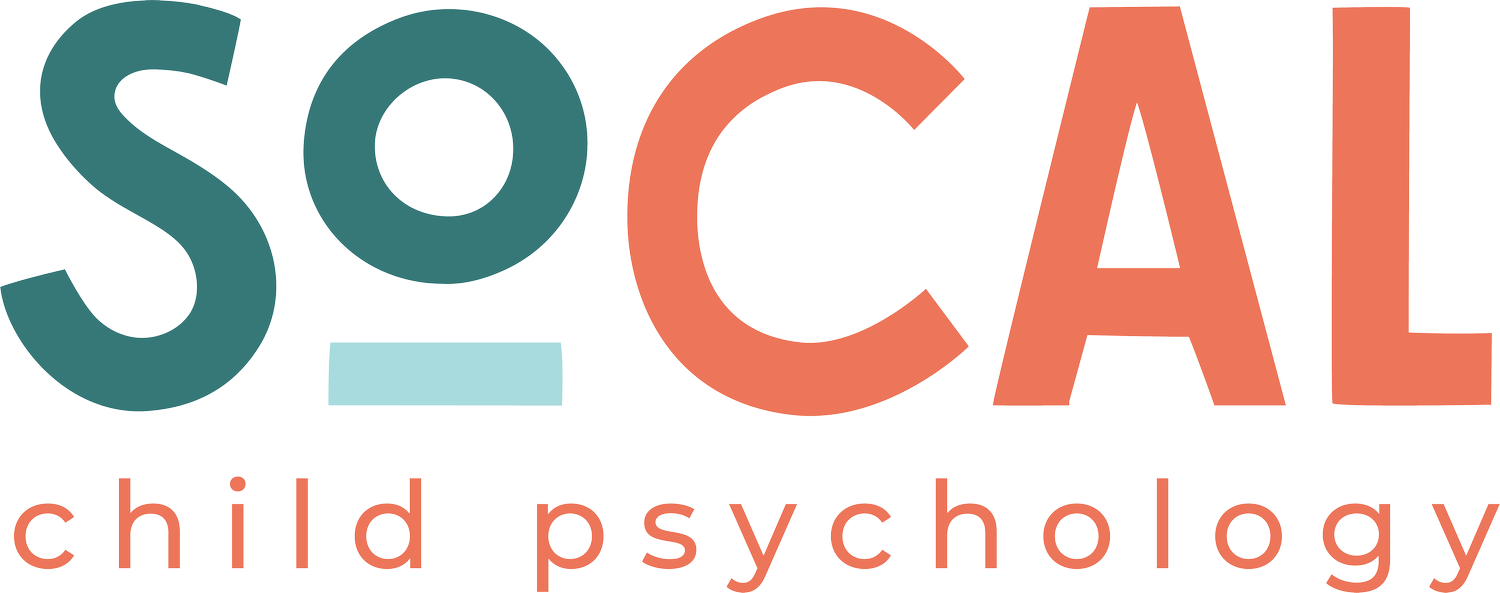At What Age Does ARFID Typically Start?
Understanding ARFID Beyond “Picky Eating”
Many kids go through picky eating stages, but Avoidant/Restrictive Food Intake Disorder (ARFID) is different. ARFID is an eating disorder that significantly impacts a child’s growth, nutrition, and emotional wellbeing. Parents often wonder: At what age does ARFID typically start, and how do I know if it’s more than just picky eating?
At SoCal Child Psychology in La Jolla, we help families across San Diego understand ARFID and provide therapy that helps children expand their comfort with food while reducing stress at mealtimes.
Common Ages ARFID Emerges
Early Childhood (Ages 2–6):
Many cases of ARFID are first noticed when children begin transitioning to solid foods or when food variety expectations increase. Parents may see strong reactions to textures, smells, or certain food groups.
Elementary School (Ages 6–12):
Some children continue to have extreme restrictions in what they eat. At this age, differences compared to peers become clearer—birthday parties, school lunches, and social events often highlight the limited diet.
Adolescence (Ages 13+):
In some cases, ARFID does not fully develop until adolescence. This may be triggered by anxiety, sensory challenges, or a medical event (such as choking or vomiting) that makes eating feel unsafe.
Why ARFID Can Be Missed in Early Years
Parents often hear reassurances like, “They’ll grow out of it,” or “Lots of kids are picky.” While this may be true for typical picky eating, ARFID is different. Children with ARFID may:
Refuse entire food groups
Become anxious at mealtimes
Lose weight or fail to grow as expected
Experience stress when eating with others
If these patterns persist beyond typical picky phases, it’s worth seeking an evaluation from a child psychologist experienced in ARFID.
When to Seek Help For ARFID
It’s time to seek help if your child’s eating habits are:
Affecting their growth or nutrition
Interfering with family routines or causing conflict
Leading to social isolation (avoiding sleepovers, school lunches, or parties)
Early intervention is key to supporting your child. The sooner ARFID is identified, the more support your child receives in developing healthier eating habits. Even if your child doesn’t have a diagnosis of ARFID, when picky eating leads to challenges above, your family may benefit from therapy for picky eating.
At SoCal Child Psychology, we offer evidence-based treatment for ARFID. Utilizing the SPACE treatment model, you will participate in parent-focused sessions and implement strategies that improve your child’s flexibility in eating foods, while learning supportive responses.
FAQs About ARFID
Q: Can ARFID start suddenly?
The development of ARFID is complex and may be related to a number of factors. For example, certain conditions, such as anxiety, autism spectrum disorder, and ADHD are commonly comorbid. Certain medical conditions or experiencing a negative incident (e.g., choking), may lead to a child being more fearful of foods.
Q: Is ARFID just anxiety?
ARFID can overlap with anxiety, but it is its own diagnosis with unique symptoms and treatment needs.
Q: Should I wait and see if my child grows out of it?
If eating struggles are impacting health, growth, or daily life, it’s best not to wait for support. Picky eating in children tends to peak at 3-years-old. But for children whom picky eating is severe in early years, they are more likely to develop ARFID without treatment.


